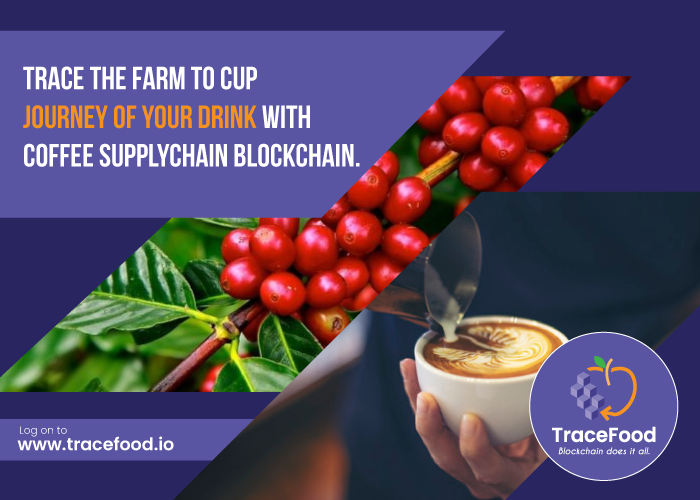Coffee has been the most popular beverage of all time after its discovery. There have been many stories about its impact on our health since its invention. Some studies have found an association between drinking coffee and decreased overall mortality. But this goodness many react opposite if the quality of the coffee product varies.
What are the challenges in the coffee supply chain?
The first challenge for entrepreneurs entering the coffee business starts with the question of how to manage the complex food ecosystem. For a coffee plantation, the supplychain goes a very long way from the hills mostly to the plains, processors, distributors and then to the retailers. If anyone in the middle mishandles the product or adulterates it, the detection process becomes very difficult and there are more chances for the good products to get wasted as recall becomes impossible.

Technologies in the supplychain
Food products have various farming and storage methods, handling processes and transportation processes. With the growing complexities many companies start to implement many new technologies to document the whole process taking place in the supplychain.
But the recording process raises doubts as these data can be altered by the participants in the chain and can also produce deceit products. There are many challenges in adapting to the coffee traceability system because of the multiple participants in the whole journey.
Blockchain for coffee industry
Blockchain stands as the trustworthy technology to document each and every phase of the coffee supplychain from the farm to the cup. Implementation of blockchain allows streamlined practices for data entry.
This coffee ecosystem involves many players and layers of structures such as processors, distribution networks and trading platforms. In this case the use blockchain in coffee goes beyond ensuring food safety by increasing the profit as it cuts out middlemen who take more commissions.
How is blockchain useful?
In the traditional and the most common pricing system where the involved players judge the rate, rather than considering the entire value chain. However in Blockchain anyone can see the working in the whole travel providing the picture of the supply and demand. Above all, this helps the end entities to know how much does the origin, even the farmer get out of it. Apparently this creates interest and trust among the people with the increase in demand.
The overall traceability helps to prove the quality of the product and also easy recall if there is any accidental complication without the wastage of the good products.
In addition, the technology enables verified and authenticated transactions to be securely shared with every player in the coffee supply chain from the retailer to the plantations, providing a marketplace with complete transparency.
Coffee supplychain Blockchain
If you have decided to enable blockchain to your supplychain then be sure to check for customisable blockchain solutions so that your private details and special ingredients are not disclosed. Tracefood helps you to build robust and highly customisable blockchain solutions to bring the best out of your business. Our expert developers provide you services that are best suited for your business.
Do you have any questions left?
Write to us! We are happy to help!
[contact-form-7 id=”5″ title=”Contact form 1″]